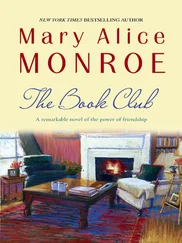“Really?” Tracey said. She slowed down. “You mean, the roof rolls back?”
“It’s such a romantic idea, dancing under the stars,” Love said. She leaned back in her seat. “I’ve got something to confess, Tracey. I came to this island to get pregnant.”
“Whoa, lady, that’s more information than I need to know,” Tracey said. “If you want to tell me stuff about the history that’s fine, that’s stuff I might use again on somebody else, but don’t tell me personal stuff, please. They don’t pay me enough.”
Love laughed. “Everybody comes to Nantucket for a reason. Some people came to hunt whales and the Quakers came to escape religious persecution. And I came to get pregnant. It feels good to tell you that I came here to have a baby. Now that someone knows, I feel like I’m responsible for it.”
“You’re not responsible to me,” Tracey said. “Believe me, you’re not.”
“Would you look at me?” Love asked.
“What?” Tracey said.
“Would you turn around and look at me?”
Slowly, Tracey turned. Her brow twisted in extreme discomfort.
“I came to the island to get pregnant,” Love said. “I will get pregnant.”
“Okay, so now what do you want me to do? Say ‘Amen’?”
“No, just watching me say it is enough.” Love checked her map. “Let’s go to the Old Mill,” she said. “I know the way.”
The next day, Love skated to the Beach Club. A pleasant-looking, sandy-haired man was standing on a stepladder, fiddling with the lamppost. Love swung in a half-circle near the ladder and came to an easy stop.
“I’m Love O’Donnell,” she said. “You Mack?”
“Yep.” He screwed the glass bulb back into the lamppost and patted it. “Hope this works.” He stepped down from the ladder and shook Love’s hand. “It’s nice to meet you.”
“Likewise,” she said. He had nice blue eyes, and Love judged him to be in his early thirties. Too young.
“I need to wash my hands and then we’ll get started,” Mack said. “Feel free to look around. Those are the doors to the lobby.” He pointed across the parking lot. “I’ll meet you there in a few minutes.”
Love skated across the parking lot. Bill had explained the hotel as an L, and that’s what Love saw: plain, gray-shingled rooms, some running down toward the water and some facing the water. Nothing special about them from the outside except that they were all built in the sand and looked out over the ocean, which today was slate gray. Love felt a wave of disappointment. She was expecting world-class, something grandiose. What had Bill said he charged? Six hundred dollars a night?
Love skated over to the steps that led into the lobby. She removed her Rollerblades thinking she would go in and talk to this guy Mack, but if it didn’t work out she could probably get a job in town. At the Jared Coffin House maybe, or another place with a bit more character.
The lobby, however, was a pleasant surprise. In fact, Love decided after about thirty seconds that it was the most attractive room she’d ever seen. The first thing she noticed were six quilts that hung from the exposed beams so that they resembled sheets billowing on a clothesline. The floors were polished wood and hunter green carpet that sank under Love’s stocking feet. There was a brick fireplace against one wall and the opposite wall had giant windows that faced the beach. The room was decorated with white wicker furniture, plants and trees, a black grand piano, and toys: miniature bicycles, tiny Adirondack chairs, a rocking horse. Love approached the front desk, which was made of the same shiny, honey-colored wood as the floor. She picked up a tiny brass bell and gave it a tentative swing. Mack appeared from the back.
“Come around,” he said.
He showed Love the door that led to the office. The office was a cramped, cluttered room with a stereo, a fax, and a horribly messy desk, although it had the same million-dollar view of the water. Then Love saw a cracked door and noticed there was another office behind it. Bill’s office? Love knocked timidly and pushed the door a bit. Bill sat at a huge, lovely desk, reading.
“Hi, Bill,” Love said.
Bill looked up. He fumbled with his book and it fell to his feet.
“Oh, hi,” he said. “Hello. You’re here. You Came.”
“Yes, of course,” she said. Would it be presumptuous to imagine that her presence flustered him? “I told you I’d be here.”
Bill picked the book up from underneath his desk.
“Well, okay,” he said. “Good. What do you think?”
“The lobby’s pretty,” she said. “I haven’t seen the rooms.”
“They’re not quite ready yet,” Bill said. He flipped through the pages of his book and they made a ruffling noise, like a bird’s wings flapping. “Mack will show you the ropes. But it’s good to see you here. I guess I’ll see a lot more of you.”
“Yes,” Love said. “I guess you will.”
“The key to your job as a front desk person is to dot your i ’s and cross your t ’s,” Mack said. “Write everything down. A guest wants dinner reservations: write it down. A guest receives a fax: log it into the fax log book. A guest needs a cab to the airport at six A.M.: write it down for Tiny. Tiny works the night desk. She’ll call the cab the night before, and make sure the guest has paid his bill. Never fails, once a summer a guest walks out of here without paying his bill because some desk person forgot to write it down. Not a good thing.”
Love produced a notebook from the front pocket of her anorak, and scribbled things as Mack spoke. “Tiny,” Love said.
“Tiny doesn’t answer personal questions, so don’t ask her any. She’s probably the smartest one of us all. She doesn’t air her dirty laundry. The rest of us, well, we work together so much, sometimes we can’t help it. We’re kind of like a family.”
“Family,” Love wrote.
“You brought a notebook,” Mack said. “I like that. I’ve trained at least fifteen desk people over the years. There’ve been good ones and bad ones. Good desk people are detail oriented. They pay attention. They listen. They use discretion.”
“Discretion.” Big letters. Underlined.
“A lot of our clientele are very wealthy,” Mack said. “They’re used to having certain things done for them. For example, some people won’t want to take a cab into town. They’ll expect a ride.”
“What do I tell them?” Love asked.
“Explain that it’s not our policy to give rides but that you’d be more than happy to call them a cab.”
“Common sense,” Love said.
“There will be guests who say they don’t like the fruit at breakfast. They’ll want peaches instead of bananas. If someone asks for peaches, write it down. I buy the breakfast and I’ve been known to honor requests for peaches. We don’t offer room service so we try to do the best we can on the breakfast.”
“No room service,” Love repeated. She wrote it down.
“You’ll be working every day from eight to five, except Tuesday, your day off. That’s a lot of time on the desk. In July and August it can get pretty hectic. You’ll be bombarded with requests, questions, people checking out, people checking in. If it gets to be too much, let me know. Let Therese know, let Bill know. Don’t try to tackle everyone’s problems at once. It won’t work.”
“I took a magazine to deadline each month,” Love said. “I can handle the pressure of twenty hotel rooms.”
“Mid-June, of course, the Beach Club starts,” Mack said. “We have a hundred members who pay dues to use the beach. They each have a locker. They each have a key. They all need chairs and towels. The kids want buckets and shovels. On a hot day in August when you have thirteen check-outs and twelve check-ins and twenty-five kids running through the lobby with sandy feet and a guest in room twelve telling you his toilet is overflowing and old Mrs. Stanford has lost the key to her Beach Club locker, then you will know the meaning of pressure.”
Читать дальше












